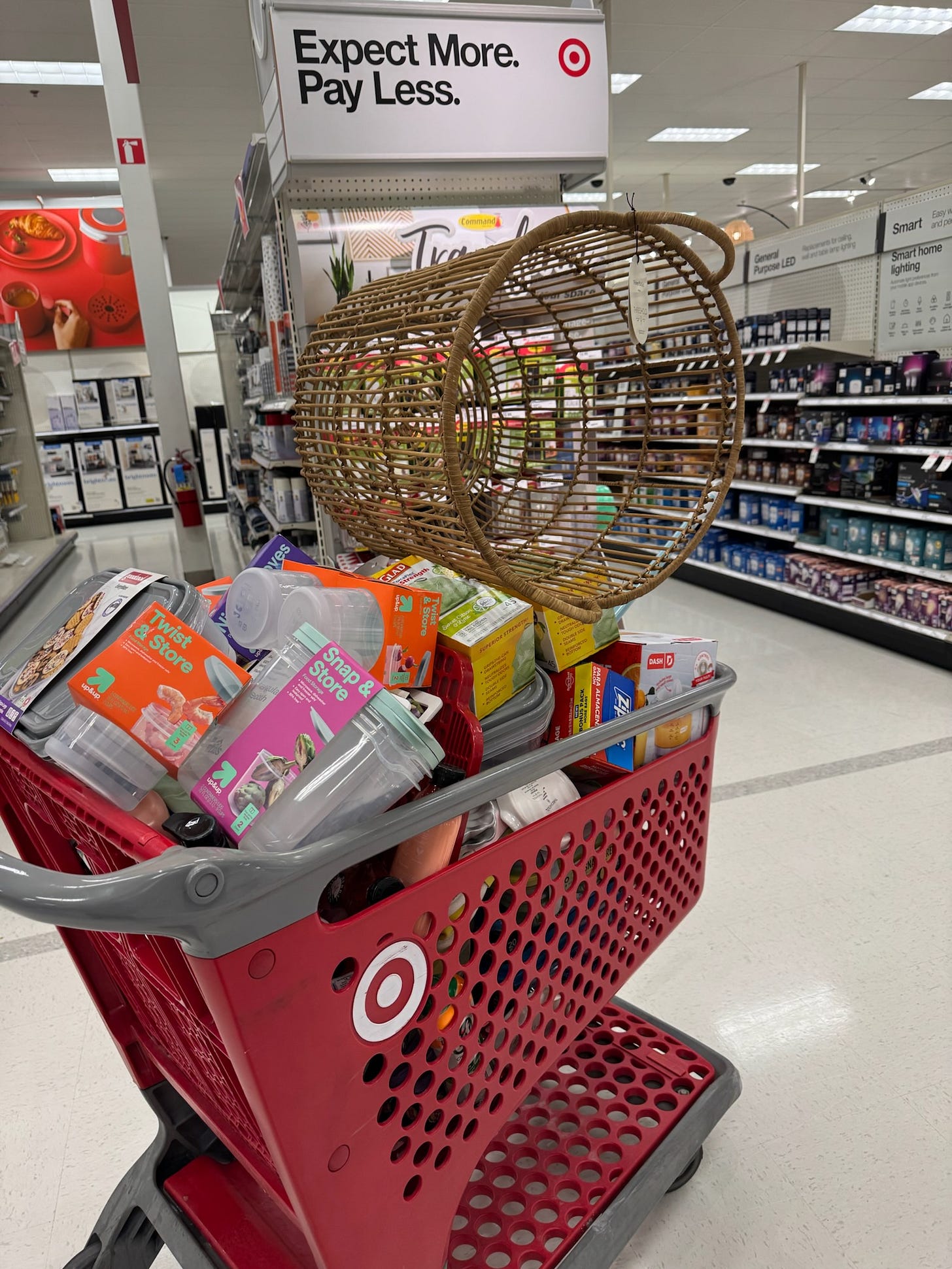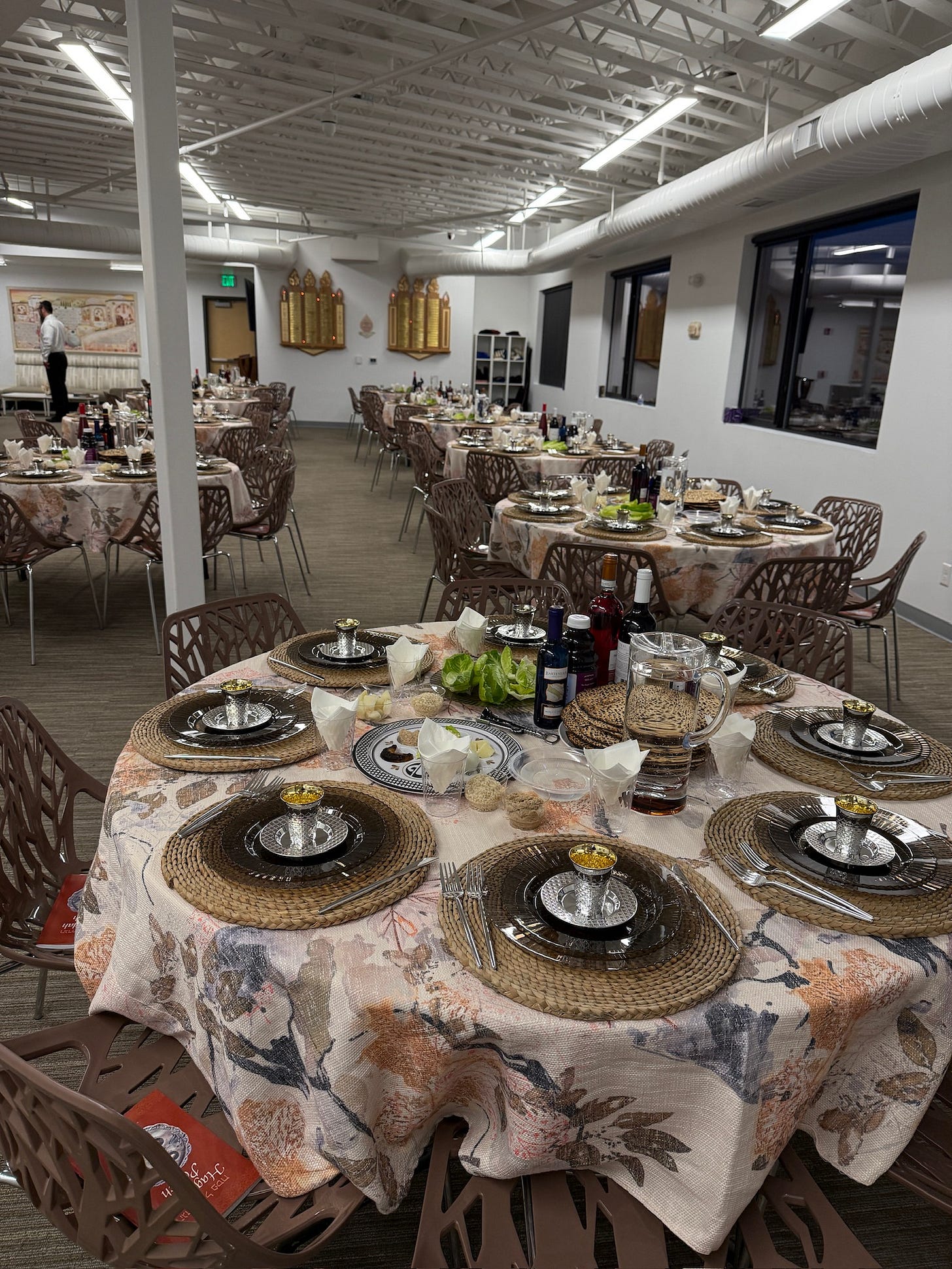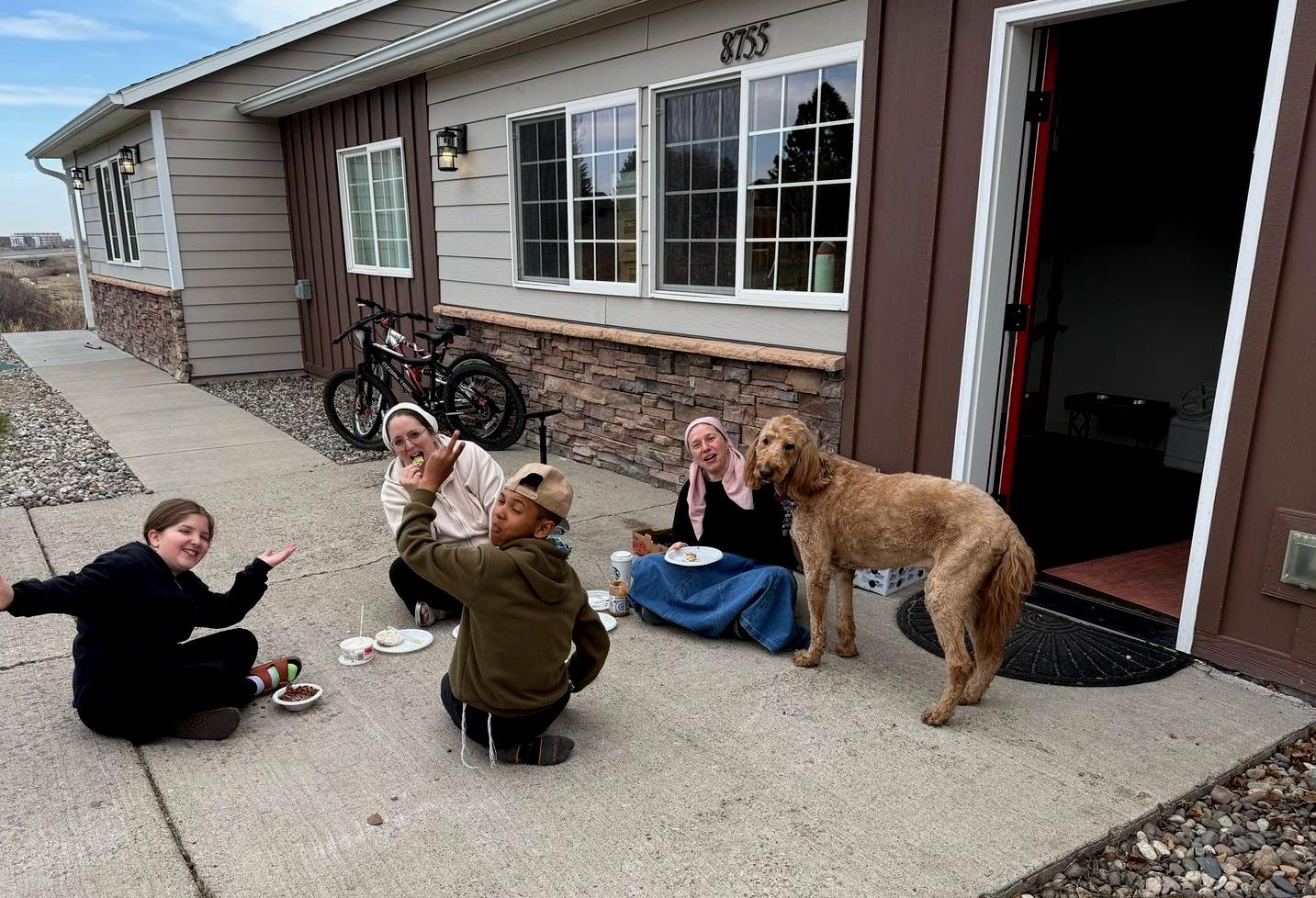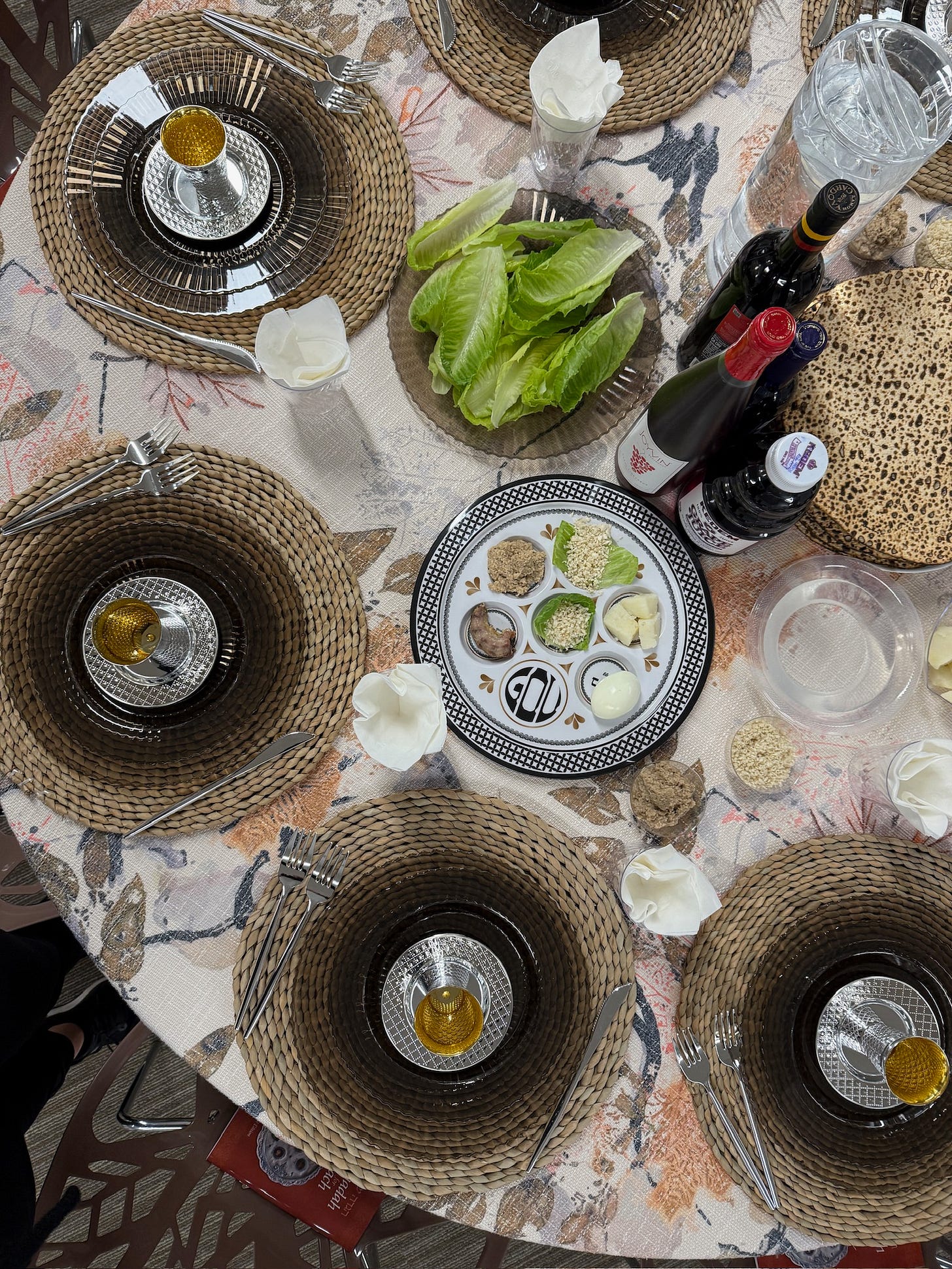Whatever Breaks You Makes You Stronger
The challenges, joys, and lessons of a demanding Pesach season.
They say whatever doesn’t break you makes you stronger… I think that it first breaks you, then it makes you stronger. Let’s back up for a second: you’re going to read this on the second day of Chol Hamoed (intermediate days) of Pesach. How was it?! Let me know in the comments—I’m sure there are some good Seder stories, and I want to hear them :).
So I want to share a discussion I had in therapy (are you getting bored of my process already?). The truth is that it’s good stuff, and it’s an honest reflection of my life and the things I think about—and at the end of the day, that’s what I have to offer. So, nothing new.
I think I might’ve mentioned in the last post that Pesach season always has me questioning my abilities even though I have been making Pesach for seventeen years now and know what needs to get done, —and the addition of my Pesach kitchen has been life-changing! But I find that every year, there is an unexpected development that brings unique challenges. So along with the familiarity, there are always new and exciting challenges to navigate.
So, I’m in therapy, talking about something I’m having a really hard time with. Crazily enough, it’s not even Pesach-related! It just gets heightened during this time. Maybe because capacity is being stretched—who knows? But I’m struggling with it. It’s a very common struggle for me (which makes it all the more frustrating), and we spend a great deal of my therapy sessions talking about it.
I’m expressing that this is really hard, and sometimes I feel like I’m not going to make it—like I don’t have the right tools or I’m not cut out to successfully navigate these circumstances. Just maybe, this is going to break me. My therapist said to me, “This might bring you to your knees, and maybe it will break you (or it feels that way), and you’re also stronger for it. I’ve known you for over ten years—you’re stronger than you were ten years ago, five years ago, two years ago….”
We went on to discuss this concept of strength and setting a mindset around it. He told me of a study that was done in the hospitality industry, specifically in housekeeping. Housekeeping can be a physically and emotionally draining job. In the study, they created two groups: one group where the housekeepers were given self-care tips, and the other group where the housekeepers created a narrative around the job—that it’s hard and taxing, that the body and sometimes the heart hurts, but it also makes you stronger. I’m obviously condensing the story, but you get the point:
They found that the first group, even though they had some self-care tips, kind of stayed the same mentally and physically. But the group that practiced this intention of gaining strength through the job actually got much stronger.
Here’s the point we were picking apart: the goal is not to deny our lived experience. If something feels hard, we need to acknowledge it. Not pretend and say, “I’m okay, it’s all good,” which is denial, with no trust between our mind and body. So, without pretending—what if I recognized the hardships without brainwashing myself that “I’m in over my head” over and over again? What if the hardship narrative is healthier as in, “Whatever is happening right now is, in the long run, going to make me stronger, more resilient, and hopefully a wiser and more thoughtful person”?
For some reason, I found this really profound. It’s not some earth-shattering, revolutionary, never-heard-before piece of advice. The most powerful things are usually right in front of us.
It was a shift from the regular “take care of yourself,” “rest,” and “feel good” narrative. It goes deeper: the housekeeping group that was taught self-care strategies didn’t get stronger because they didn’t change their narrative. If you think something is bad for you, it probably will be.
Maybe this will land for you, maybe it won’t—but it landed for me!
When I am prepping for Pesach—and for me, it’s a lot of manual labor—instead of thinking “Oh, my body is taking a beating,” “I’m so exhausted,” and “Everything hurts,” maybe the thought can be “Oh wow, I’m getting stronger,” and “Look how much I can handle.” When we are struggling with parenting and we think, “That’s it, I’m done,” allow yourself to fall apart, have a tantrum (I’m super good at those ;)), and then when the dust settles, you can reflect on where you are now and how far you’ve come. Progress has been made—maybe not in all areas, but it’s there.
I wrote all this before Yom Tov—between grinding Maror, Seder prep, Shabbos prep, and squeezing in a shower at some point. Now it’s after Havdalah, and I’m so grateful for a beautiful Yom Tov—truly! And there were some really hard moments with my kids. It’s really hard not to internalize the choices and behaviors your children sometimes exhibit. It’s hard not to be embarrassed, and it’s hard to not make it about me and my “parenting abilities.”
Right now, I feel a little broken about it. Maybe soon I can take my own words out for a spin and find my way to the other side, where I can focus on the lessons and strength that will come.
Good thing I have therapy tomorrow :).
With love,
Chavie







That's a great therapist you have! Very wise.
Life can be hard. And maybe we are better, and more interesting, for it.
Maybe this is the whole idea of remembering the slavery… not sugarcoating it rather going through it with the purpose of getting towards freedom (strength)… hmm… 🤔 thanks for sharing yourself with the world! Xo